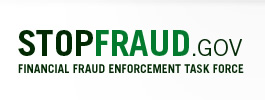
U.S. Department of Justice
United States Attorney
Southern District of New York
Wednesday, October 5, 2011
Manhattan U.S. Attorney Sues Bank of New York Mellon Corporation for Fraudulent Practices in Connection with Foreign Exchange Services
U.S. Seeks Hundreds of Millions of Dollars in Civil Penalties
New York, NY – Preet Bharara, the United States Attorney for the Southern District of New York, announced that the United States filed a civil fraud lawsuit yesterday against Bank Of New York Mellon Corporation ("BNYM"). The Government’s Complaint alleges that BNYM, one of the world’s largest custody banks, engaged in a scheme to defraud custodial clients who have used BNYM’s foreign exchange services from at least 2000 to the present. The Complaint seeks comprehensive injunctive relief and hundreds of millions of dollars in civil penalties under the Financial Institutional Reform, Recovery and Enforcement Act of 1989 ("FIRREA").
Manhattan U.S. Attorney Preet Bharara said: "With an alleged fraud of this magnitude and scope, it is imperative for the United States to seek justice and reform on a broad scale while individual victims simultaneously pursue their own damages. This suit seeks to impose not only appropriate civil penalties, but also comprehensive injunctive relief to ensure that Bank of New York’s alleged fraud stops now. The message should be clear –- this conduct will not be tolerated."
BNYM offers foreign exchange services to its custodial clients, for whom it holds domestic and international financial assets, including currency and securities. In particular, BNYM offers a "standing instruction" foreign exchange service pursuant to which BNYM automatically provides currency exchange on an as needed basis when, for example, the client buys or sells foreign securities or receives dividends on foreign securities that are repatriated to the United States.
The Complaint alleges that BNYM has provided its clients with false, incomplete and/or misleading information about how it determines what currency exchange rates or prices will be used for standing instruction foreign exchange transactions. For example, according to the Complaint, BNYM has represented to standing instruction clients that the service is free of charge and that transactions are executed according to "best execution standards." Offering "best execution standards" is commonly understood to mean that the client receives the best available market price at the time that the currency trade is executed. The Complaint alleges that, BNYM’s standing instruction service is actually far from free and, instead of providing clients with favorable rates within a specified daily range, BNYM waits until the end of the trading day to price standing instruction currency trades and consistently gives standing instruction clients virtually the worst rates of the day. According to the Complaint, BNYM obtains more favorable prices for itself on the spot market, reaping large profits on the price differential or "spread."
The Complaint asserts that the large spreads BNYM has obtained on standing instruction foreign exchange trades at the expense of its clients have accounted for the lion’s share of BNYM’s profits from all foreign exchange channels. The size of the spread BNYM derives from its clients depends in large part upon volatility in currency prices –- the greater the volatility, the greater the opportunity for a large spread. During the financial crisis in 2008, when currency prices fluctuated dramatically, the profits BNYM generated at the expense of its custodial clients were enormous, the Complaint alleges.
According to the Complaint, it is extremely difficult, if not impossible, for clients to determine whether the prices they received are fair and reasonable, because BNYM does not provide time stamps to its clients indicating when during the day the trades were executed. The Complaint asserts that when clients have made inquiries of BNYM about its pricing scheme, BNYM has consistently misled them by providing false and/or incomplete information.
As set forth in the Complaint, BNYM has collectively defrauded its custodial clients, which include federally insured financial institutions and/or their subsidiaries or affiliates, of hundreds of millions of dollars.
The case is being handled by the Office's Civil Frauds Unit. Mr. Bharara established the Civil Frauds Unit in March 2010 to bring renewed focus and additional resources to combating financial fraud.
The Civil Frauds Unit works in coordination with President Barack Obama's Financial Fraud Enforcement Task Force, on which Mr. Bharara serves as a Co-Chair of the Securities and Commodities Fraud Working Group. President Obama established the interagency Financial Fraud Enforcement Task Force to wage an aggressive, coordinated, and proactive effort to investigate and prosecute financial crimes. The task force includes representatives from a broad range of federal agencies, regulatory authorities, inspectors general, and state and local law enforcement who, working together, bring to bear a powerful array of criminal and civil enforcement resources. The task force is working to improve efforts across the federal executive branch, and with state and local partners, to investigate and prosecute significant financial crimes, ensure just and effective punishment for those who perpetrate financial crimes, combat discrimination in the lending and financial markets, and recover proceeds for victims of financial crimes.
Assistant U.S. Attorneys Pierre G. Armand, Lawrence H. Fogelman and James Nicholas Boeving are in charge of the case.



